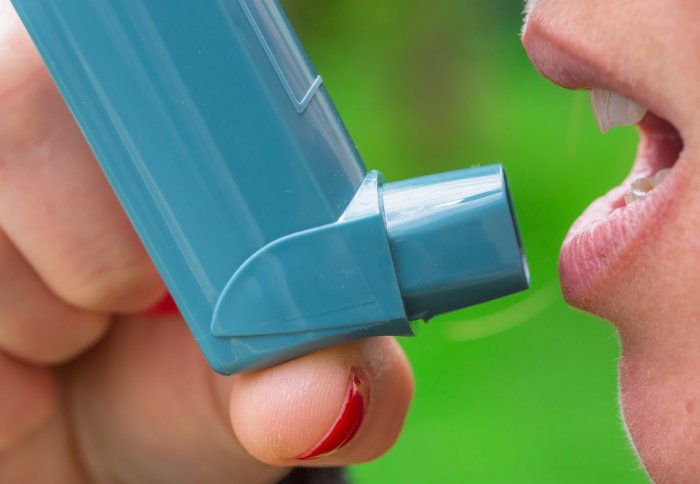

Research into the mechanism behind asthma attacks has discovered potential new ways to treat - and possibly prevent - this life-threatening condition.
Most asthma attacks happen when people catch a cold – but exactly why the virus triggers an attack.
Our study in human volunteers showed that a cold infection did lead to extra dsDNA in the airways of people with asthma and an increased allergic response, but to prove the two were connected, we had to see whether getting rid of this dsDNA, or preventing its release, would reduce the allergic response
– Professor Sebastian Johnston
National Heart & Institute, Imperial College London
Researchers from the UK and Belgium have discovered a new pathway within the immune system that triggers an attack, and they believe some drugs already licensed or in development could be used to block various points on the pathway. One of these is commonly used to treat cystic fibrosis. Their findings are published today in Nature Medicine.
The body has two types of immune responses: type-1 responds to viruses and type-2 to allergens. In theory, when one response is triggered it should suppress the other, so catching a cold should prevent the allergic response that causes asthma. But in reality, the opposite happens, with colds being the highest risk factor for an asthma attack.
The researchers, from Imperial College London and the University of Liège, wanted to see if a type of DNA, released as cells die during a cold infection, could be causing the type-2 response that creates inflammation of the airways, leading to asthma attacks.
They tested the theory by analysing nasal samples taken from 11 healthy individuals and 23 with asthma, before, during and after infection with a cold virus. They found that proteins linked to a type-2 immune response were higher in individuals with asthma after they were infected with the virus, and those individuals also had higher levels of the double-stranded DNA (dsDNA) which is released as the cells die.
Professor Sebastian Johnston, lead author from National Heart & Lung Institute at Imperial College London, said: “Our study in human volunteers showed that a cold infection did lead to extra dsDNA in the airways of people with asthma and an increased allergic response, but to prove the two were connected, we had to see whether getting rid of this dsDNA, or preventing its release, would reduce the allergic response.”
The study in more detail
In order to test the connection between dsDNA and the allergic response in mice, the researchers used an enzyme called DNase, which digests excess DNA. DNase, known by the generic name dornase alfa, is a drug used in cystic fibrosis to thin the thick mucus which clogs up the lungs.
They found that mice treated with the enzyme had a lower type-2 response following infection with the cold virus, and also showed lower levels of inflammation in the airways.
They also showed that a cell type called neutrophils were releasing the dsDNA.Depleting numbers of these cells before infection, or blocking their release of the dsDNA, led to similar benefits as using DNase.
Professor Johnston, explained: “Reducing the release of dsDNA does reduce the type-2 immune response and the resulting inflammation, so new drugs to reduce neutrophil numbers in the lung, or to prevent the neutrophils from releasing their DNA could help prevent attacks. Speeding up clearance of the DNA once it is released has a similar effect, which means DNase could also work to prevent and hasten recovery from attacks occurring when people catch a cold. Because the enzyme is already licensed for cystic fibrosis, it should be possible to move fairly quickly to clinical trials, to see if we can replicate our success in the lab to reduce asthma attacks in patients.”
The team also plan to work with companies who have drugs capable of reducing the number of neutrophils and limiting their capacity to release the excess dsDNA, which could stop asthma attacks at an earlier stage in the process.
The research was supported by funding from the European Research Council, Asthma UK and the Medical Research Council.
‘Host DNA released by NETosis promotes rhinovirus-induced type-2 allergic asthma exacerbation’ by Toussaint, M et al. is published in Nature Medicine (DOI: 10.1038/nm.4332).
Article text (excluding photos or graphics) available under an Attribution-NonCommercial-ShareAlike Creative Commons license.
Photos and graphics subject to third party copyright used with permission or © Imperial College London.
Reporter

Ryan O'Hare
Communications Division

Contact details
Tel: +44 (0)20 7594 2410
Email: r.ohare@imperial.ac.uk
Show all stories by this author




Leave a comment
Your comment may be published, displaying your name as you provide it, unless you request otherwise. Your contact details will never be published.